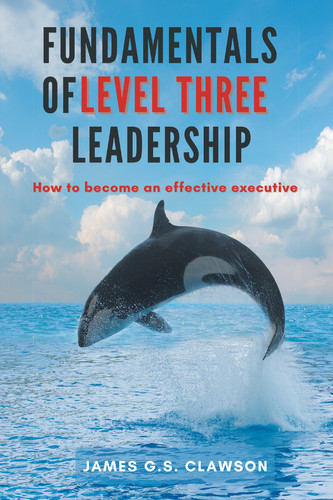What does it take to become an effective executive? Trait theory has long since been discredited. Intelligence has many faces and it seems obvious that the smartest person may not be the best leader. Experience is important, yet age is no guarantee of wisdom. Legal authority carries with it some power yet title is no guarantee of effective leadership. So are there any commonalities in the skill sets of effective executives? Can those skills be taught and learned? Are they transportable from one situation to another?
Yes and yes are the answers I have gleaned from over forty years of study, teaching, researching, consulting, and writing. During that time, I have continuously updated and revised my understanding of what it takes to make an effective executive and assembled them here. I never thought that any one person or model was accurate or comprehensive enough to hang your hat on. Consequently, you will see here broad inclusion of the ideas of many others along with my own. I believe in integrating and building on what we already know about various topics rather than asserting a narrow personal view—which I also include. Some of the chapters provide summaries of major works in each section, by which I simply introduce those frameworks and invite the serious student to read the original sources.
Some of the concepts here might be familiar to you—in my experience, that usually means “I’ve heard the term before” but does not extend to explaining it cogently without coaching. Often I will ask you your opinion on a thing and leave space for you to note it. If you don’t do that and after reading say, “I knew that” I invite your serious reflection on what it was that you already knew. I have taught these principles to CEOs, C-level executives, company presidents, division heads of business, managers, supervisors and students of business at the MBA and doctoral levels. And done that all over the world from the United States to China to Japan to Australia to India to South Africa to Bahrain to Egypt to Italy to Germany to Sweden to Brazil and Costa Rica and many countries in between. The concepts are tried and true in the crucible of active debate among business executives at every level in every region of the globe in a variety of industries.
In my experience, executives vary widely in the amount of reading they do. Further, all the other books I have seen, with the exception of the works of Ken Blanchard and Spencer Johnson (One Minute Manager series, Who Moved My Cheese?) and John Kotter’s Our Iceberg is Melting, have required long bouts of focus wading through multiple examples and verbiage chapter after chapter. No metaphors here, just short, focused two to five page chapters each presenting one concept, an example, a visual diagram, and a series of challenges. My goal, that is, every chapter will provide readers with a clear, powerful idea, and stimulation to think about its application to your life, work, and career.
The ~140 concepts presented here are organized around a flexible, powerful model of leadership I developed while at the Harvard Business School. Here are the questions that form a diamond shaped framework for this model:
1. What are the basic concepts that we must understand in order to get the rest of the book.
2. Who are you? Do you understand why people including yourself behave the way they do?
3. What is your strategic story? How does one develop a strategic story that one can offer to would-be followers?
4. Can you sell your story? Do you know how to influence people, who are influencing others, and can you improve your abilities to sell your story to others?
5. Can you organize to help not hinder? Do you understand how to organize people in ways that energize them rather than suck energy out of them?
6. Are you a Change Master? Do you understand how the change process works? Or are you doing the best you can with what you know?
7. Finally, can you convert intangible asset pools into tangible results? How does one recognize the essential intangibles like people, relationships, and processes, and transform them into financial returns?
My hope is that you will find a significantly valuable idea in every chapter. If so, this volume will provide a valuable introduction and reference for executives, managers, and business students worldwide. The format allows one to pick and choose what they want to read or assign to be read without extraneous verbiage. One man responsible for sales in half a continent encountered one of the ideas here and immediately left the program saying “I’ve been searching for this idea my whole career. I can’t take any more!” I hope you find such an experience in this book.
James Clawson
Charlottesville, VA
January 2021
